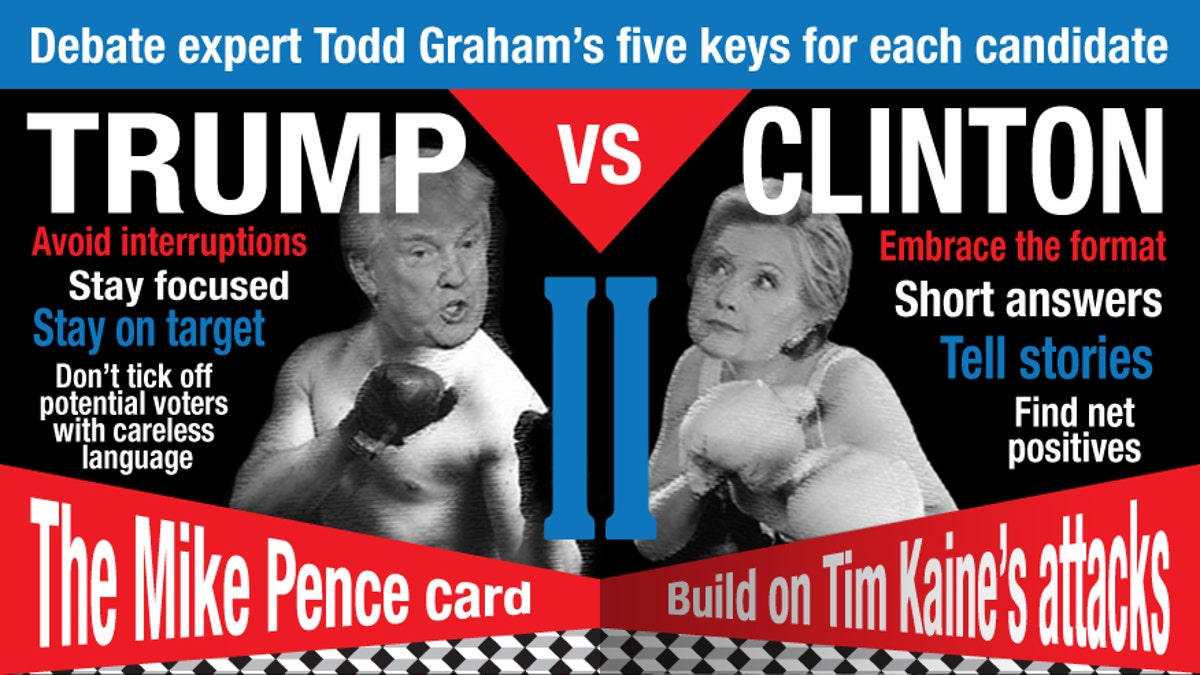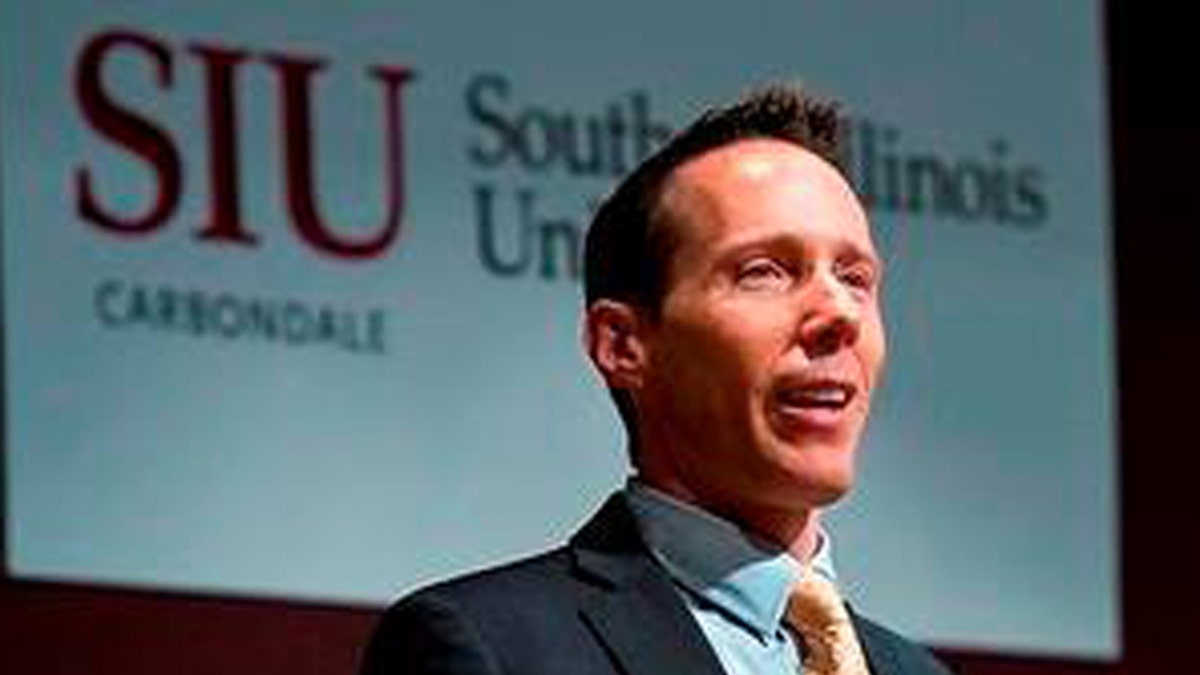
It’s not too late for Hillary Clinton and Donald Trump to take free advice from a nationally recognized debate expert ahead of Sunday’s town hall-style rumble in St. Louis.
FoxNews.com asked Todd Graham, director of debate at Southern Illinois University, what both candidates need to do to win over voters at the event, to be held Sunday at 9 p.m. ET at Washington University, in St. Louis. Graham, whose debate teams have won five national championships and advanced to the “final-four” of a national championship tournament nine consecutive years, broke down winning game plans for both.

Graham is a nationally recognized debate coach. (Todd Graham/Facebook)
For Donald Trump, whose performance in the first debate at Hofstra University on Sept. 27 was widely deemed a dud:
- Stay focused on the big ideas: “He's done well in his campaign on the topics of immigration, jobs, free trade agreements, terrorism and criticisms of Clinton,” Graham said. “No matter the question, he should be able to fit one of those five areas into his answer.
- Stay on target: “Trump, in the first debate, could not stay on target, either with his criticisms of Clinton or with his answering of questions,” Graham said. “His answers rambled, sometimes almost incoherently, and drifted badly off target and off message. Trump needs to tighten up his answers on questions.”
- Avoid interruptions: “They hurt him in the first debate, and they hurt [Clinton running mate Tim] Kaine in the VP debate,” Graham said.
- Avoid offending potential voters: “Trump had trouble with some of his positions and words being characterized as racist and sexist in the first debate,” Graham said. “He's got to be more careful with his language.”
- Use the VP debate to your advantage: “Don't just say ‘[Mike] Pence won most of the polls, he's the best debater ever,’ because nobody cares,” Graham said. “Make it into an argument in classic Trump-speak: ‘You know Mike Pence, right? He's going to be a wonderful vice president, as demonstrated when he won this last debate. He's going to be able to translate my positions, my wishes, into policy on Capital Hill. We make a perfect team. I'm an outsider with new, fresh ideas. And my running mate is a skilled political who knows how to get things done within the system.’”
Clinton, whose performance in Round I was generally praised, may need to do better, acording to Graham.
- Embrace the format: “Clinton's main flaw is that she's too robotic,” Graham said. “This time, actual people, not journalists, are asking the questions. It's easier to come across less formal and more conversational if she just pretends she's ONLY talking to the person who asked the question.”
- Use short answers: “Clinton is notorious for going overtime,” Graham said, joking that ‘she ran over the moderator, ran over the timer, and I think she even ran over my neighbor's dog.’ Shorter is better. Less is more.”
- Add more personal stories: “You can work them into many answers,” Graham said. “It helps to show trials and tribulations.”
- Extend Kaine’s attacks: “The entire VP debate was a setup from the Democratic perspective,” Graham said. “Kaine may have lost most polls, but he won where it mattered. He set up Trump as being indefensible, even for his own running mate.”
- Find net positives: “Make sure the audience has something they can take away from the debate on her side OTHER than ‘Trump is bad,’ etc.,” Graham said. “She needs a "Cliff’s Notes" of her life's accomplishments we can all remember.”




